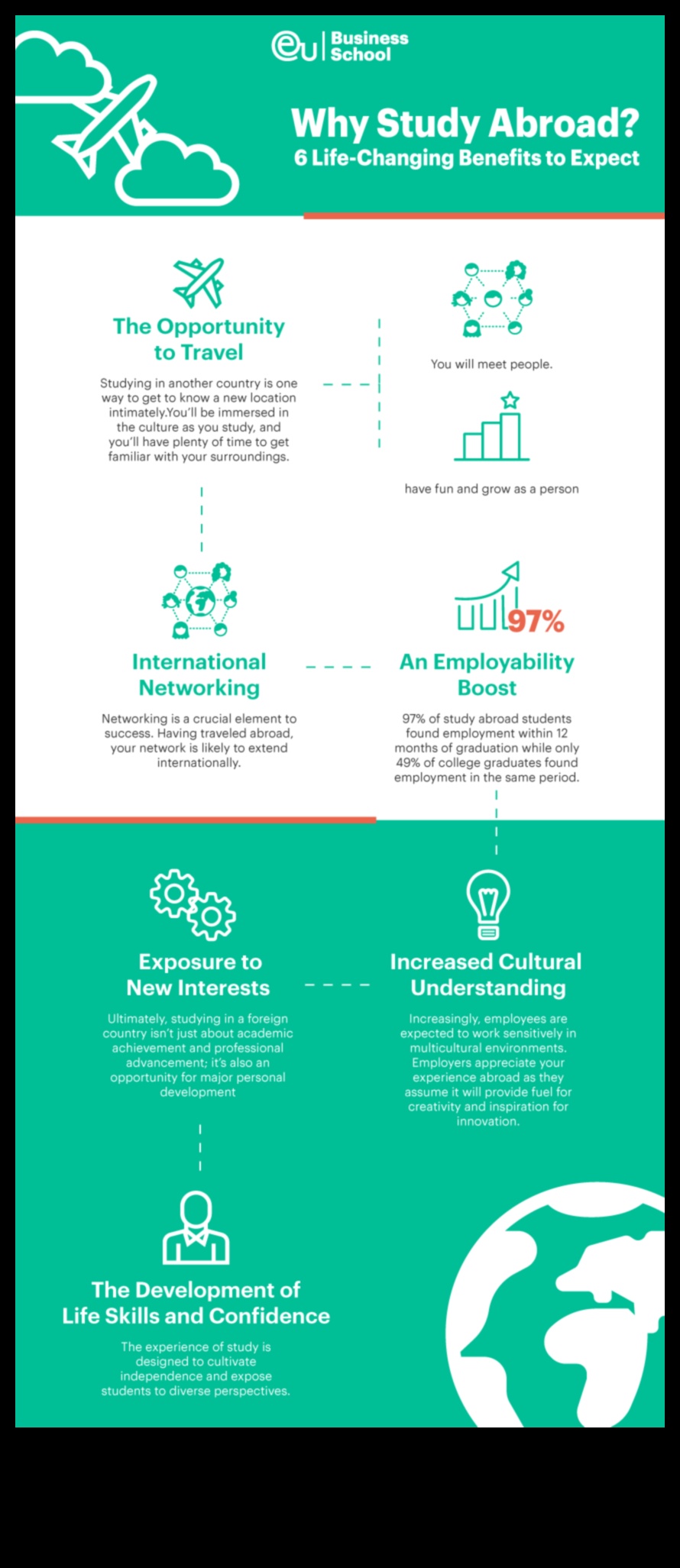
Should I Study Abroad?
Studying abroad is an amazing opportunity to learn about a new culture, meet new people, and challenge yourself academically. However, it is also a big decision that should not be taken lightly. There are many factors to consider before you make up your mind, including the costs, the time commitment, and the benefits.
In this article, we will discuss the pros and cons of studying abroad so that you can make an informed decision about whether or not it is right for you.

Benefits of Studying Abroad
There are many benefits to studying abroad, including:
- Cultural immersion: Studying abroad is a great way to immerse yourself in a new culture and learn about different ways of life. You will have the opportunity to meet people from all over the world, learn about their cultures, and experience their customs firsthand.
- Language acquisition: Studying abroad is a great way to improve your language skills. You will have the opportunity to practice your language skills every day, and you will be surrounded by native speakers who can help you correct your mistakes.
- Academic enrichment: Studying abroad can be a great way to challenge yourself academically. You will be exposed to new ideas and perspectives, and you will have the opportunity to take classes that you would not be able to take at your home university.
- Personal growth: Studying abroad is a great way to grow as a person. You will learn to be more independent and self-reliant, and you will develop a greater appreciation for different cultures.
Cons of Studying Abroad
There are also some cons to consider before you study abroad, including:
- Cost: Studying abroad can be expensive, especially if you are going to a country with a high cost of living. You will need to factor in the cost of tuition, housing, food, transportation, and other expenses.
- Time commitment: Studying abroad can be a big time commitment. You will need to be prepared to spend a significant amount of time away from your family and friends.
- Homesickness: It is common to experience homesickness when you study abroad. You may miss your family and friends, and you may find it difficult to adjust to a new culture.

Making the Decision
Ultimately, the decision of whether or not to study abroad is a personal one. There are many factors to consider, and the right decision for one person may not be the right decision for another.
If you are considering studying abroad, it is important to do your research and weigh the pros and cons carefully. If you are still undecided, you may want to talk to your advisor or a study abroad advisor to get more information.
Studying abroad can be an amazing experience, but it is important to make sure that it is the right decision for you.
| Topic | Features |
|---|---|
| Study Abroad | – Benefits of studying abroad |
| Reasons to Study Abroad | – Pros and cons of studying abroad |
| Pros and Cons of Studying Abroad | – Cost of studying abroad |

II. Benefits of Studying Abroad
There are many benefits to studying abroad, including:
- Expanding your horizons and learning about different cultures
- Improving your language skills
- Meeting new people from all over the world
- Gaining a global perspective
- Developing new skills and experiences
- Preparing for a career in a global economy
Studying abroad can be a challenging but rewarding experience. It is an opportunity to learn about yourself, the world around you, and your place in it.
II. Benefits of Studying AbroadThere are many benefits to studying abroad, including:
- Improved language skills
- Cultural understanding
- Global perspective
- Career opportunities
- Personal growth
Studying abroad can help you to improve your language skills by immersing yourself in a new language environment. You will have the opportunity to practice your language skills with native speakers on a daily basis, which will help you to become more fluent and confident in your speaking, listening, reading, and writing abilities.
Studying abroad can also help you to develop a better understanding of other cultures. You will learn about different customs, traditions, and religions, and you will get to interact with people from all over the world. This can help you to become more tolerant and understanding of other cultures, and it can also help you to develop a global perspective.
Studying abroad can also be a great way to improve your career prospects. Employers are increasingly looking for employees who have international experience, and studying abroad can give you the edge you need to compete in the job market.
Finally, studying abroad can be a great way to grow as a person. You will be challenged to step outside of your comfort zone and to learn new things, and you will also have the opportunity to meet new people and make new friends. This can help you to develop your independence, resilience, and confidence.
II. Benefits of Studying Abroad
There are many benefits to studying abroad, including:
- Gaining a global perspective
- Learning a new language
- Meeting new people from different cultures
- Experiencing a new way of life
- Developing new skills and abilities
- Improving your academic performance
- Expanding your career opportunities
- Gaining a competitive edge in the job market
Studying abroad can be a life-changing experience that will benefit you in many ways. If you are considering studying abroad, I encourage you to do your research and find a program that is right for you.
V. Applying to Study Abroad
The application process for study abroad programs can vary depending on the program you choose. However, there are some general steps that you can follow to apply to study abroad:
- Choose a study abroad program that is right for you.
- Contact the program coordinator to request an application.
- Complete the application and submit it on time.
- Pay the application fee.
- Wait for the program coordinator to review your application and make a decision.
Once you have been accepted to a study abroad program, you will need to prepare for your departure. This may include getting your passport and visa, arranging for health insurance, and packing your belongings. You will also need to make travel arrangements to get to your study abroad destination.
Study abroad can be a life-changing experience. It is an opportunity to learn about a new culture, meet new people, and challenge yourself in new ways. If you are considering studying abroad, I encourage you to do your research and find a program that is right for you.
Should I Study Abroad?
Studying abroad is a great way to learn about a new culture, improve your language skills, and meet new people from all over the world. However, it is a big decision and there are a lot of factors to consider before you make up your mind.
In this article, we will discuss the pros and cons of studying abroad so that you can make an informed decision about whether or not it is right for you.
We will also provide information on the costs of studying abroad, the different countries that offer study abroad programs, and the application process.
If you are still not sure whether or not studying abroad is right for you, we encourage you to talk to your academic advisor or a study abroad advisor. They can help you weigh the pros and cons and make the best decision for you.
VII. Arriving in Your Study Abroad Destination
Arriving in your study abroad destination can be an exciting and overwhelming experience. Here are a few things to keep in mind to help make your transition as smooth as possible:
-
Prepare for jet lag. Traveling to a new time zone can take a few days to adjust to. Try to sleep on the plane if possible, and avoid caffeine and alcohol in the days leading up to your arrival.
-
Find your way around. Ask your program coordinator or host family for directions to your accommodation and other important places. You may also want to download a map of the city or town where you’ll be studying abroad.
-
Get your bearings. Take some time to explore your new surroundings and get a feel for the city or town where you’ll be living. Visit some of the local shops and restaurants, and see what activities are available.
-
Meet new people. One of the best ways to make the most of your study abroad experience is to meet new people from different cultures. Join a club or organization, or attend social events hosted by your program or university.
Arriving in your study abroad destination can be a daunting experience, but it’s also an exciting opportunity to explore a new country and culture. By following these tips, you can make your transition as smooth as possible and start enjoying your study abroad experience.
Living and Studying Abroad
Living and studying abroad can be an exciting and rewarding experience, but it can also be challenging. Here are some tips for making the most of your time abroad:
- Be open to new experiences.
- Embrace the challenges.
- Learn about the local culture.
- Make friends with locals and other international students.
- Get involved in extracurricular activities.
- Stay organized and manage your time wisely.
- Take advantage of all the opportunities that come your way.
For more information on living and studying abroad, please visit the following websites:
Studying abroad is a major decision that can have a significant impact on your life. There are many benefits to studying abroad, but there are also some challenges. It is important to weigh the pros and cons of studying abroad before you make a decision.
Some of the benefits of studying abroad include:
- You will have the opportunity to experience a new culture and learn about different ways of life.
- You will improve your language skills.
- You will meet new people from all over the world.
- You will develop a global perspective.
- You will become more independent and self-reliant.
Some of the challenges of studying abroad include:
- It can be expensive.
- It can be difficult to adjust to a new culture.
- You may miss your family and friends.
- You may experience culture shock.
Ultimately, the decision of whether or not to study abroad is a personal one. There is no right or wrong answer. If you are considering studying abroad, it is important to weigh the pros and cons carefully and make the decision that is best for you.
FAQ
Q: What are the benefits of studying abroad?
A: There are many benefits to studying abroad, including:
- Gaining a new perspective on the world
- Learning about different cultures
- Improving your language skills
- Developing your independence
- Making new friends from all over the world
Q: What are the costs of studying abroad?
The costs of studying abroad can vary depending on the program you choose, the country you study in, and your living expenses. However, you can expect to pay for:
- Tuition fees
- Airfare
- Accommodation
- Food
- Travel
Q: How do I choose a study abroad program?
There are a few things to consider when choosing a study abroad program, including:
- Your interests
- Your budget
- Your academic level
- Your desired location
Once you have considered these factors, you can start researching different programs to find one that is a good fit for you.